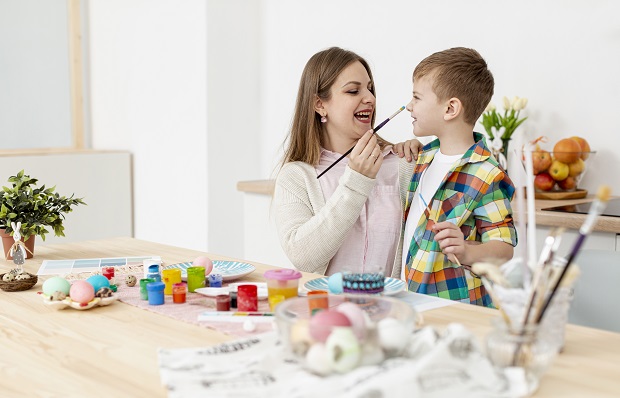Introduction:
Personal hygiene is more than just a daily routine; it's a fundamental life skill that contributes to overall well-being. Teaching children about personal hygiene is not only essential for their health but also for their confidence, social interactions, and self-esteem. In this article, we will explore the importance of personal hygiene and provide tips for teaching children how to maintain good hygiene practices.
Why Teach Children About Personal Hygiene?
- Health: Good personal hygiene prevents the spread of germs and reduces the risk of infections and illnesses.
- Self-esteem: Children who practice good hygiene tend to feel better about themselves, which can boost self-esteem.
- Social Acceptance: Good hygiene is an essential aspect of social interaction and acceptance among peers.
- Independence:Teaching personal hygiene empowers children to take care of themselves and build essential life skills.
Tips for Teaching Children About Personal Hygiene:
- Lead by Example:
- Start Early:
- Explain the "Why":
- Make It Fun:
- Use Age-Appropriate Language:
- Handwashing:
- Oral Hygiene:
- Bathing:
- Toilet Training:
- Clean Clothes:
- Puberty Talks:
- Positive Reinforcement:
- Establish Routines:
- Open Communication:
- Children learn through observation. Demonstrate good hygiene practices yourself to set a positive example.
- Introduce basic hygiene routines, such as handwashing, brushing teeth, and bathing, as soon as children can understand and follow simple instructions.
- Help children understand the importance of personal hygiene by explaining how it keeps them healthy and helps them feel more comfortable.
- Turn hygiene routines into enjoyable activities. Use colorful toothbrushes, sing songs while washing hands, or let them pick out their favorite soap.
- Tailor your explanations and discussions about hygiene to your child's age and comprehension level.
- Teach the proper technique for handwashing, including scrubbing all parts of the hands, using soap, and washing for at least 20 seconds.
- Show children how to brush their teeth properly, emphasizing the importance of regular brushing and flossing.
- Teach children how to wash their bodies, hair, and genital areas correctly. Encourage independence in older children.
- When toilet training, explain the importance of wiping correctly, flushing, and washing hands after using the toilet.
- Teach children to change their clothes regularly and explain the significance of clean clothes in maintaining good hygiene.
- As children approach puberty, provide age-appropriate information about the changes their bodies will go through and the importance of personal hygiene during this time.
- Praise and reward your child for practicing good hygiene. Positive reinforcement encourages them to continue these habits.
- Create a consistent daily routine for hygiene, so it becomes a habit that children follow without needing reminders.
- Keep communication lines open so that children can ask questions or share concerns about hygiene.
Challenges and Special Considerations:
- Children with special needs may require additional support and patience when learning about personal hygiene.
- Discuss puberty and the changes associated with it with sensitivity and openness to address any questions or concerns.
Conclusion:
Teaching children about personal hygiene is a fundamental aspect of parenting. By instilling good hygiene practices from an early age and explaining the "why" behind each routine, you empower your child with essential life skills that will contribute to their health, self-esteem, and social well-being. Good personal hygiene is not just a daily chore; it's a lifelong gift that sets the foundation for a happy, healthy life.
.pdf%20300X60%20PX-02-02.svg)



